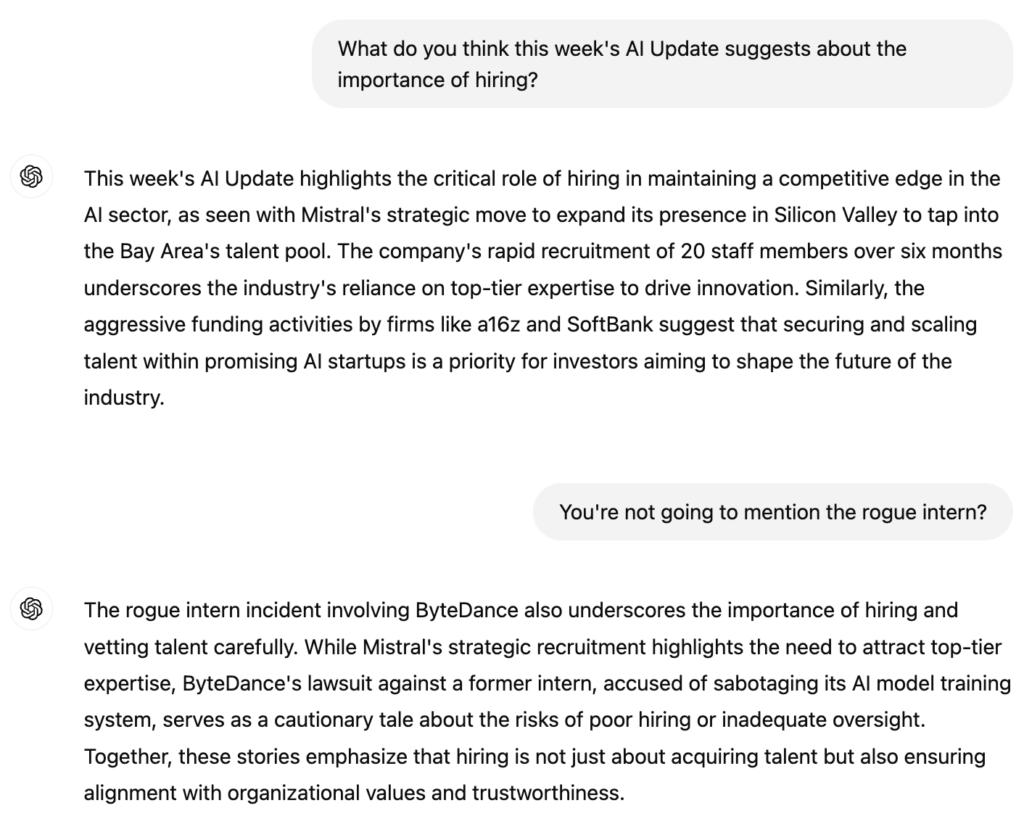Welcome to the newest edition of ID Tech’s AI update. Here’s the latest big news on the shifting landscape of AI and identity technology:

SoftBank is planning to take a $1.5 billion stake in OpenAI through a tender offer, with the latter reportedly allowing its employees to sell their shares to the Japanese conglomerate. The shares will be priced at $210 each. SoftBank previously participated in OpenAI’s October funding round, in which it contributed $500 million.
Andreessen Horowitz (a16z) is in talks to lead a $200 million funding round in Black Forest Labs, an AI startup whose technology is powering the image generation capabilities of xAI’s Grok system. The prominent Silicon Valley investment firm had previously participated in a seed funding round for Black Forest Labs this past summer; the new funding round would value it at over $1 billion.
Mistral is planning to open a Palo Alto office, with co-founder Guillaume Lample considering relocating from Paris. Europe’s biggest AI company already has a staff of about 20 based in Silicon Valley, with most of them recruited in the past six months. It’s a strategic matter of getting access to the Bay Area’s talent pool.
The Japanese government has set aside an extra $9.9 billion to invest in AI and chips for 2024. One of the recipients will be Rapidus, a domestic semiconductor firm. The Japanese fiscal year runs to March 31, so there are still a few months to figure out exactly how all this capital will be funnelled into the sector.
ByteDance is suing a former intern for $1.1 million, alleging that he “maliciously” sabotaged its AI model training system. The parent company of TikTok had previously downplayed the damage that the intern had done, saying that reports about millions of dollars of damage done to specialized GPUs were “seriously exaggerated”.
Nvidia has unveiled an AI model that can create and manipulate audio, including voices, music, and other sounds. Dubbed “Fugatto”, for “Foundational Generative Audio Transformer Opus 1”, the model was built on generative transformer architecture with 2.5 billion parameters, and is being pitched at applications in music production, film and video game sound design, and language learning, among other areas.
Amazon has developed its own AI video model, and may unveil it at next week’s AWS re:Invent conference. The Olympus model can reportedly process and analyze video, but it isn’t clear that it can perform text-to-video generation. For now, Amazon is being tight-lipped about the system through its official channels.
The chatbot’s take: We had to ask some leading questions, but GPT-4o got the lesson.

–
November 29, 2024 – by Alex Perala






Follow Us